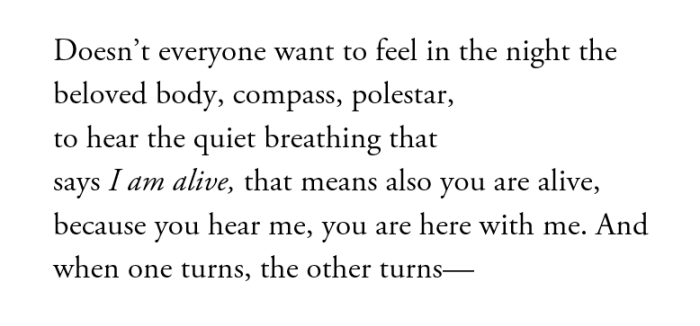A myth of devotion by louise glück – In Louise Glück’s poignant poem, “A Myth of Devotion,” readers are captivated by a narrative that delves into the profound and multifaceted nature of love, loss, and the human condition. Glück’s evocative language and skillful use of mythological allusions create a tapestry of emotions that resonate deeply with the reader.
Through the exploration of themes such as the search for meaning in the face of loss, the complexities of relationships, and the enduring power of memory, Glück’s poem invites us to reflect on the universal experiences that shape our lives.
Poem Overview: A Myth Of Devotion By Louise Glück
Louise Glück’s “A Myth of Devotion” is a poignant and introspective poem that explores themes of love, loss, and the complexities of human relationships. The poem follows a speaker who reflects on a failed love affair, using mythological allusions to convey the pain and longing experienced.
Central to the poem are the themes of devotion and disillusionment. The speaker initially idealizes their beloved, seeing them as a source of salvation and fulfillment. However, as the relationship falters, the speaker’s devotion turns into disillusionment, leaving them with a sense of emptiness and loss.
Mythological Context
Glück’s poem is rich in mythological allusions, which serve to deepen its exploration of love and loss. The speaker frequently references the Greek myth of Orpheus and Eurydice, a tale of love and sacrifice.
Orpheus, a musician of extraordinary talent, descends into the underworld to retrieve his beloved Eurydice from the clutches of Hades. However, his attempt to bring her back to the living world fails, as he turns around to look at her before they reach safety.
This myth parallels the speaker’s own experience of love and loss. The speaker’s beloved, like Eurydice, is lost to them, leaving them with a sense of longing and regret.
Speaker’s Perspective
The speaker in “A Myth of Devotion” is a complex and introspective figure. Their voice is filled with a sense of longing and regret, as they grapple with the pain of lost love.
The speaker’s perspective is shaped by their experiences of love and loss. They initially idealize their beloved, seeing them as a source of salvation and fulfillment. However, as the relationship falters, the speaker’s devotion turns into disillusionment, leaving them with a sense of emptiness and loss.
The speaker’s use of imagery, metaphor, and symbolism conveys their emotional state and the complexities of their experience.
Language and Style

Glück’s poem is characterized by its unique language and style. The poem is written in free verse, with a conversational tone that draws the reader into the speaker’s inner world.
Glück employs a variety of literary devices, including imagery, metaphor, and symbolism, to create a vivid and evocative atmosphere. The poem is rich in sensory details, which appeal to the reader’s senses and create a sense of immediacy.
The poem’s language is precise and evocative, with each word carefully chosen to convey the speaker’s emotional state and the complexities of their experience.
Symbolism and Imagery
Glück’s poem is rich in symbolism and imagery, which serve to deepen its exploration of love and loss.
The most prominent symbol in the poem is the myth of Orpheus and Eurydice, which represents the speaker’s own experience of love and loss. The speaker’s beloved, like Eurydice, is lost to them, leaving them with a sense of longing and regret.
Other symbols in the poem include the pomegranate, which represents fertility and abundance, and the snake, which represents danger and temptation.
Cultural and Historical Context

Glück’s poem is written within the context of the women’s movement and the changing roles of women in society.
The poem reflects the experiences of women who have been disillusioned by love and relationships. It speaks to the pain of lost love and the challenges of finding fulfillment in a patriarchal society.
Critical Reception and Interpretation
Glück’s poem has received critical acclaim for its exploration of love, loss, and the complexities of human relationships.
Critics have praised the poem’s use of mythological allusions, its evocative language, and its insights into the human condition.
The poem has been interpreted in a variety of ways, with some critics focusing on its feminist themes and others on its exploration of the universal human experience of love and loss.
Question Bank
What is the central theme of “A Myth of Devotion”?
The poem explores the complexities of love, loss, and the search for meaning in the face of adversity.
How does Glück use mythology in the poem?
Glück incorporates mythological allusions to provide depth and resonance to the poem’s themes, drawing parallels between the experiences of the speaker and mythological figures.
What is the significance of the speaker’s perspective in the poem?
The speaker’s perspective provides a deeply personal and introspective lens through which the poem’s themes are explored, allowing readers to connect with the emotions and experiences of the speaker.